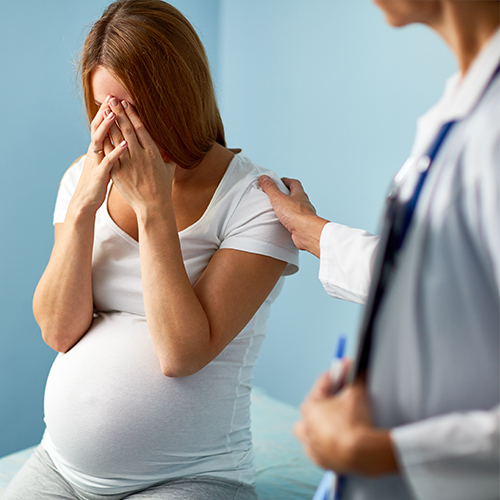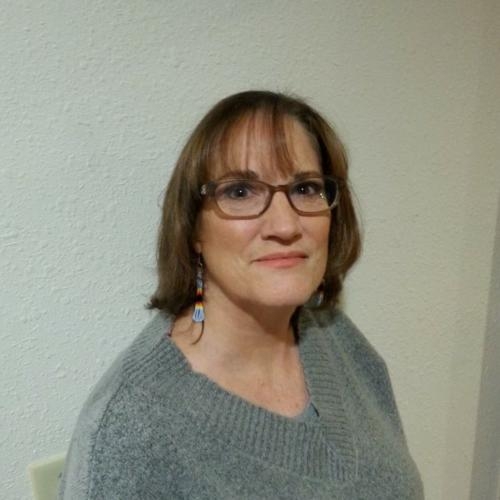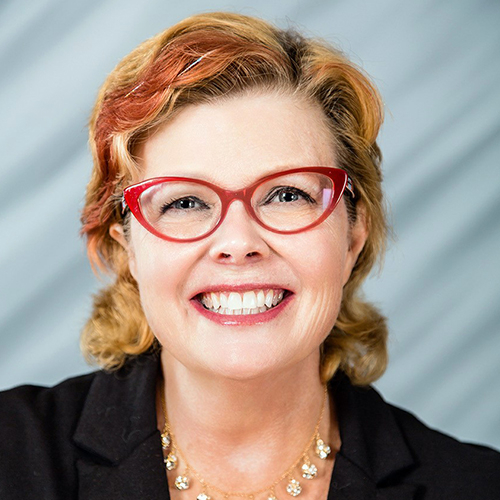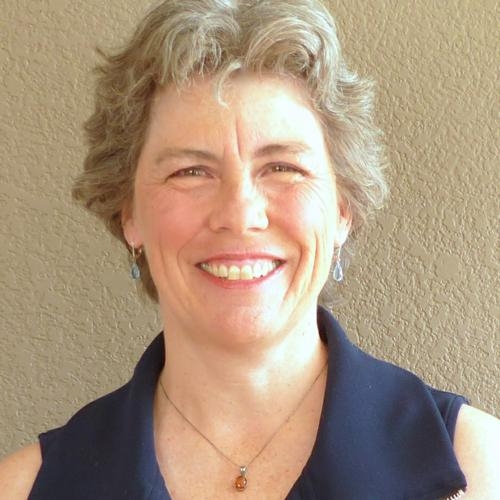
Perinatal Care Through a Trauma Informed Lens Lecture Pack
Trends in maternity care include the development of trauma-informed approaches to improve services and outcomes. The state of maternal and infant mortality and morbidity reveal gaps in the knowledge about trauma-informed approaches. This package will help health care professionals to learn about sensitive approaches to working with women and families who have had trauma, become more aware of the baby's experience and trauma-informed care for the mother-baby dyad, how breastfeeding helps with women who have experienced trauma, and staff support so that the birthing team and other professionals who support maternity practice will have more capacity to create and support neuroprotective environments.
Looking to sign up as a Group of 5 or more? Contact us at [email protected] to learn more or submit your group registration.


Maryl Smith, LDM, CPM, has been attending out-of hospital births in Oregon for 38 years. Her degree in theology with a counseling emphasis and her involvement in Native American community generated a growing awareness of the deep need for safe maternity care settings where survivors of trauma could thrive. So she and her midwifery partner intentionally set out to educate themselves and create that environment. They are forever grateful to their best teachers: the amazing women who entrusted them with their care.
Maryl has taught on staff at Birthingway College of Midwifery and served on the Diversity and Preceptor boards. She has led women’s support groups, provided counseling for non-profit organizations and correctional institutions and co-facilitated a drug and alcohol recovery group. She continues to teach at conferences in the US and abroad, training providers how to naturally integrate trauma-informed practice with their patient care. Her articles on this topic have been published in Midwifery Today.
When she isn’t catching babies, Maryl embarks on adventures with her granddaughters, creates music with her musician husband or takes pen in hand and attempts to write something interesting.
Objective 1: The participant will develop written and verbal forms of inquiry that cover a broad range of trauma history and facilitate patient disclosures;
Objective 2: The participant will be able to state the most probable coping mechanisms that are connected with the type and duration of a trauma;
Objective 3: The participant will be able to generate questions that elicit their patient’s self-identified strengths and resources, then describe ways they might utilize those resources.
The art of trauma informed intake is more than just including a couple of questions on your intake history. When the right questions are asked in a non-threatening way, you can become the trusted recipient of sensitive information that is vital to the quality of care that you provide. This class will enable you to plan and create a trauma-safe environment at the very first patient visit. You will develop written and verbal forms of inquiry that cover a broad range of trauma history and will learn to facilitate patient disclosures in a compassionate, effective way. You will be able to identify indicators of trauma history in the absence of patient disclosure and learn to connect the coping mechanisms your patient exhibits to the type and duration of their trauma history. You will learn how to elicit your patient’s self-identified strengths and resources which you can use to develop an effective treatment plan. Your individualized approach will positively influence patient trust, safety, health and emotional well-being. Most importantly, it will avoid the re-traumatization that so often happens in medical settings which erode the success of future healthcare encounters.


Dr. Kendall-Tackett is a health psychologist and International Board Certified Lactation Consultant, and the Owner and Editor-in-Chief of Praeclarus Press, a small press specializing in women's health. Dr. Kendall-Tackett is Editor-in-Chief of the journal, Psychological Trauma and was Founding Editor-in-Chief of Clinical Lactation, a position she held for 11 years. She is Fellow of the American Psychological Association in Health and Trauma Psychology, Past President of the APA Division of Trauma Psychology, and a member of APA’s Publications and Communications Board.
Topic: Breastfeeding Helps Mothers Overcome the Legacy of Abuse and Adversity: It Makes All the Difference - [View Abstract]
Topic: Burnout, Compassion Fatigue and Self-Care for Members of the Perinatal Team - [View Abstract]
Topic: Burnout, Secondary Trauma, and Moral Injury in Perinatal Care Providers - [View Abstract]
Topic: Does Breastfeeding Protect Maternal Mental Health? The Role of Oxytocin and Stress - [View Abstract]
Topic: Lessons to Learn from Fed Is Best: How Can We Improve Our Care? - [View Abstract]
Topic: Mother-Infant Sleep Location: It's Not as Simple as it Seems - [View Abstract]
Topic: Trauma and Breastfeeding: Working Effectively with Trauma Survivors - [View Abstract]
Topic: What’s New in Postpartum Depression? A Summary of Current Findings - [View Abstract]
Objective 1: Describe the types of trauma most likely to affect childbearing women;
Objective 2: Describe the incidence of trauma in the U.S. and internationally;
Objective 3: Discuss effective strategies for working with breastfeeding trauma survivors.
Trauma affects at least one third of childbearing women. Although a common experience, many breastfeeding counselors do not feel confident in working with trauma survivors. Should they ask about it? How do you stay within your scope of practice? This session will provide an overview of the types of trauma women are most likely to experience (childhood abuse, birth trauma, sexual assault, partner violence, natural disaster, and combat), and provide strategies for working effectively and comfortably with trauma survivors. This session also provides an overview of research showing that breastfeeding actually helps trauma survivors cope and lessens the risk of intergenerational trauma.


Kate White is and award-winning craniosacral and massage therapist, prenatal and early childhood educator. She is trained in somatic therapies, prenatal and perinatal health, lactation, brain development, infant mental health, and has specialized in mother-baby dyad care using somatic prevention and trauma healing approaches for nearly 20 years. She is a mother of two children, holds a BA and MA in Communication, is a Registered Craniosacral Therapist in the Biodynamic Craniosacral method and a Somatic Experiencing® Practitioner. Her work combines somatic therapy with brain development to help give families with babies and small children the best possible start. She is Founding Director of Education for the Association for Prenatal and Perinatal Psychology and Health from 2013 – 2018 where she managed a large online educational program for professionals. She currently co-directs this program, administering an online program for parents and parent professionals, runs a private practice and offers her own seminars through the Center for Prenatal and Perinatal Programs, ppncenter.com.
Topic: Best Practices in Prenatal and Perinatal Psychology and Somatic Health for Optimal Birth Outcomes - [View Abstract]
Topic: Integration of the Science of Safety and Resilience into Perinatal Care: A 5 Step Process - [View Abstract]
Topic: The Science of Safety and Trauma Specific Recognition to Improve Birth Outcomes: What Does It Mean for the Midwife? - [View Abstract]
Topic: “It Was Right but so Wrong:” Helping Families Make Sense of Difficult Births with Trauma Sensitive and Prenatal and Perinatal Healing Approaches - [View Abstract]
Objective 1: Participants will be able to define birth trauma and childhood maltreatment;
Objective 2: Participants will recognize autonomic nervous system responses to threat, especially the freeze response that is common in women, and ways to cultivate a felt sense of safety;
Objective 3: Participants will identify a 5 step process for improving perinatal practices that include couples, babies, and practitioners.
Maternity practice in the United States has come under scrutiny over the past year due to the increase in maternal mortality. Data also show that maternal and infant morbidity are big concerns for prenatal and perinatal practitioners; for every woman who dies during, labor and delivery 70-80,000 more report almost dying. The news reports “obstetrical violence” and birth trauma as common for women all over the world. Infants are also affected by birth trauma, especially neonatal intensive care and separations from their mothers. The trauma-informed care model is starting to be integrated into maternity care as many providers are screening for perinatal mood disorders and childhood maltreatment sometimes referred to as Adverse Childhood Experiences. This presentation will review how current psychological, somatic psychological and mental health approaches include the autonomic nervous system responses to threat and overwhelm, or the science of safety, and processes to help patients feel resilient, or acknowledge their capacity to cope in the face of adversity. Then, a new five point process will be outlined that may improve perinatal outcomes, refine the care of mother-baby dyad, and support birth and maternity professionals of all kinds.


Dr. Veronique Mead was a family physician and assistant professor with an obstetrical practice before leaving medicine because she felt she was causing harm. Retraining as a somatic therapist provided insights through a comprehensive understanding of trauma. She has been aggregating the large bodies of evidence revealing how adversity influences health for two decades.
Dr. Mead has developed Adverse Babyhood Experiences (ABEs) to identify risk factors for maternal and infant mortality and morbidity, chronic illness and other effects. ABEs focus on risk from preconception to a child’s 3rd birthday to emphasize how effects of trauma are influenced by epigenetic and other nonpsychological mechanisms. Her focus highlights how opportunities for prevention, healing and repair are greater than has been recognized. Dr. Mead is a speaker, educator, and writer who shares the science on her blog, Chronic Illness Trauma Studies.
Objective 1: Participants will be able to list 3 categories of adverse babyhood experiences (ABEs);
Objective 2: Participants will be able to list 5 symptoms that indicate a history of ABEs in parents or babies;
Objective 3: Participants will be able to list 1 or more treatment approaches that can prevent, reduce or reverse the effects of ABEs.
Maternal mortality rates are improving around the world but preventable deaths remain unacceptably high, such as in the US where rates are the highest of any developed country, continue to increase, and are associated with severe racial disparities.
Adverse babyhood experiences (ABEs) are a new construct identifying 10 categories of adversity that increase risk for complications and death in mothers and infants. In this emerging era of trauma-informed care, ABEs provide opportunities to optimize resilience through practical strategies for prevention, treatment and repair. ABEs serve as indicators of risk for low birth weight, preterm birth, neonatal intensive care, and chronic illness later in life, among other poor outcomes for infants; and for miscarriage, still birth, other complications and negative outcomes for mothers, including postpartum depression, which is a leading cause of maternal death. ABEs further the science of adverse childhood experiences to highlight a distinct group of risk factors occurring prior to a child’s 3rd birthday.
Attendees will be able to identify early indicators of risk in babies and parents; understand how effects of trauma occur through epigenetics and are not psychological; learn of practices for reducing risk in the sensitive periods before and after birth, and for repairing effects of ABEs later in life; and part with knowledge to inform choices in management and treatment interventions that optimize clinical outcomes.


Dr Marilyn R Sanders is a board-certified pediatrician and neonatologist who cares for critically ill babies, infants, and their families at the Connecticut Children’s Medical Center Newborn Intensive Care Unit in Hartford, CT. Dr Sanders did her pediatric residency at the University of Connecticut School of Medicine and her fellowship in Neonatal-Perinatal Medicine at Johns-Hopkins School of Medicine. She is a Professor of Pediatrics at the University of Connecticut School of Medicine. She also provides neurodevelopmental follow-up for babies and infants up to 3 years old. Her scholarly interest is providing trauma-informed care to hospitalized newborns, infants, young children, and their families. Her focus is the impact of the autonomic nervous system’s sense of safety, danger, or life threat on our emotions and behavior. She lectures throughout the United States and Europe. She has authored papers and book chapters on trauma-informed care for young infants, children, and their families in the hospital setting. Dr Sanders is currently under book contract with WW Norton and Company. Her book, to be published in 2020, discusses implications of the Polyvagal Theory, for the well-being and development of infants, children, and adolescents.
Objective 1: Participants will be able to describe the evolutionarily-based hierarchy of behaviors associated with neuroceptions of safety, danger, or life threat;
Objective 2: Participants will be able to list three biological expectancies of the human newborn;
Objective 3: Participants will be able to describe 3 strategies for reducing trauma in the NICU.
Human infants expect to engage and connect to their adult care providers to feel safe, secure, and thrive. The autonomic or unconscious nervous system alerts us whether we feel safe, in danger, or in a life-threatening situation. When we feel safe, we are open, calm and ready to engage. When we feel in danger, our sympathetic nervous system is activated; our hearts race, and we may either lash out or leave. Finally, if we feel our lives are endangered, we may collapse, shut down or dissociate. Neuroscientist Stephen Porges calls the unconscious awareness of our safety, danger, or life threat, neuroception.
When babies are hospitalized in a newborn intensive care unit. (NICU), their biological expectancies of physical and emotional proximity to their caregivers are disrupted. Both hospitalized babies and their families may have neuroceptions of danger or even life threat reflected in their behaviors and vital signs. Supporting parasympathetic vagal tone through the continuous presence of families, skin to skin care, and forming strong relationships can mitigate the trauma of a hospitalization in the NICU.
Trauma-informed care in the NICU supports babies and their families to remain together, supports parents as the primary relationship for their babies and builds safety, security, and connectedness among babies, families, and staff.
Accreditation
Nursing CEUs - Nursing Contact Hours: This nursing continuing professional development activity was approved by the American Nurses Association Massachusetts, an accredited approver by the American Nurses Credentialing Center’s Commission on Accreditation. This program has been approved for 5 Nursing Contact Hours. This enduring material is accredited through until 06/20/2024.
Additional Details
Viewing Time: 4 Weeks
Tags / Categories
Stress in the Neonate, Trauma & Breastfeeding, Trauma-Informed Care
How much time do I have to view the presentations?
- The viewing time will be specified for each product. When you purchase multiple items in your cart, the viewing time becomes CUMULATIVE. Ex. Lecture 1= 2 weeks and Lecture Pack 2 = 4 Weeks, you will have a total of 6 weeks viewing time for ALL the presentations made in that purchase.
- Time for viewing the talks begins once you purchase the product. For Live Webinars & Symposiums, the viewing period begins from when the live event takes place. Presentations can be accessed 24/7 and can be viewed as many times as you like during the viewing period.
What are bundled lectures?
- Presentations may be available individually or via a bundled package. Bundled lectures are a set of lectures that have been put together based on a specific category or topic. Some lectures will be available in both individual and lecture form, whereas others will be available only via a bundled lecture pack.
Will there be Handouts?
- YES! Each lecture comes with a PDF handout provided by the Speaker.
Some lectures include a Q&A, what does that mean?
- During our online conferences, presentations that occur live are also followed by a short 15 minute Question & Answer Session. The Speaker addresses questions that were posted by Delegates during the presentation. We include the recording of these Q&A Sessions as a bonus for you.
How can I receive a Certificate?
- If this presentation offers a certificate, once you are done viewing the lecture or the lectures within a bundle, submit your attendance record in order to be able to download your certificate. You'll be able to see which credits are offered for the lecture by hovering over the "Credits Available" link within the "Speakers & Topics" tab.
Professionals that selected this package also viewed

|
|

|







